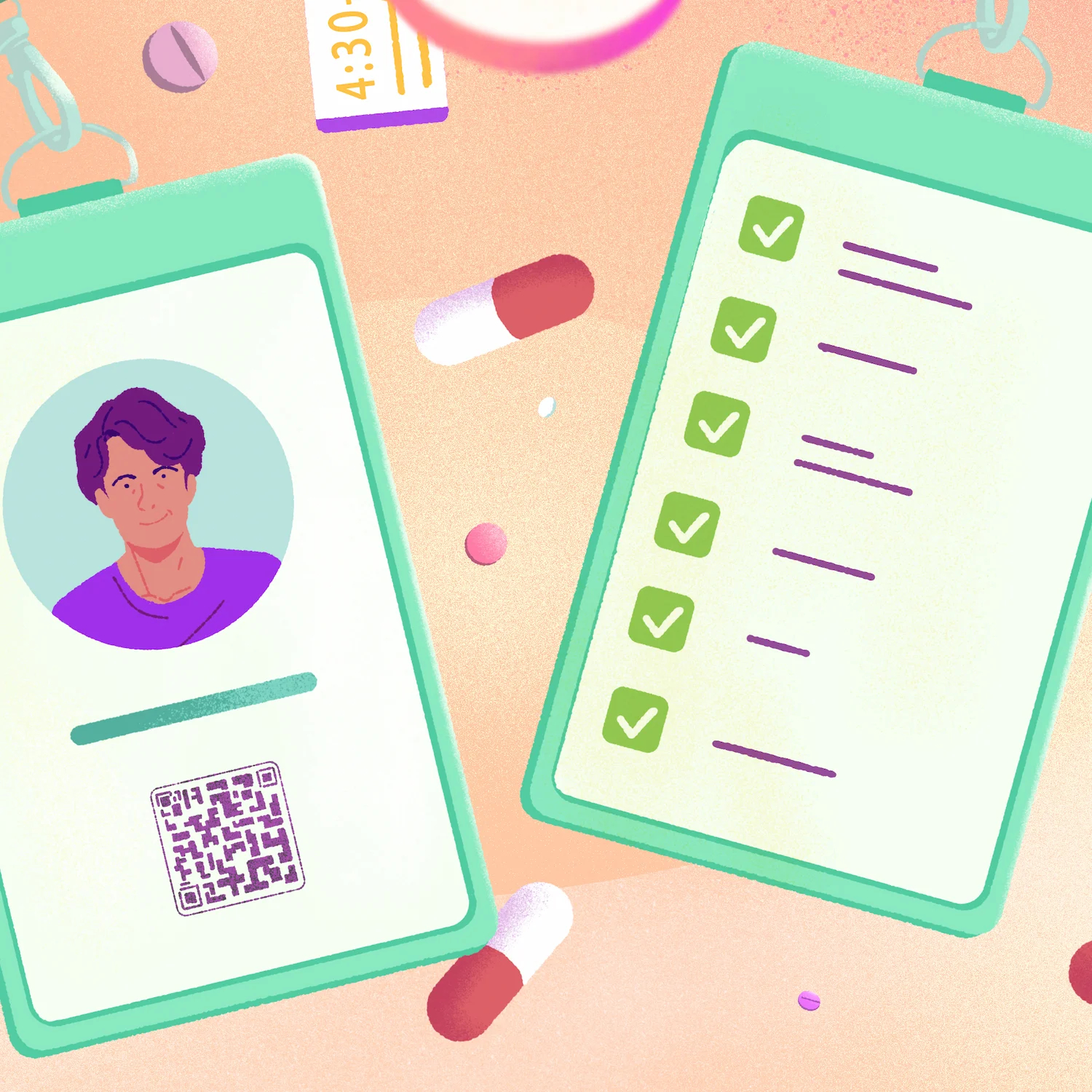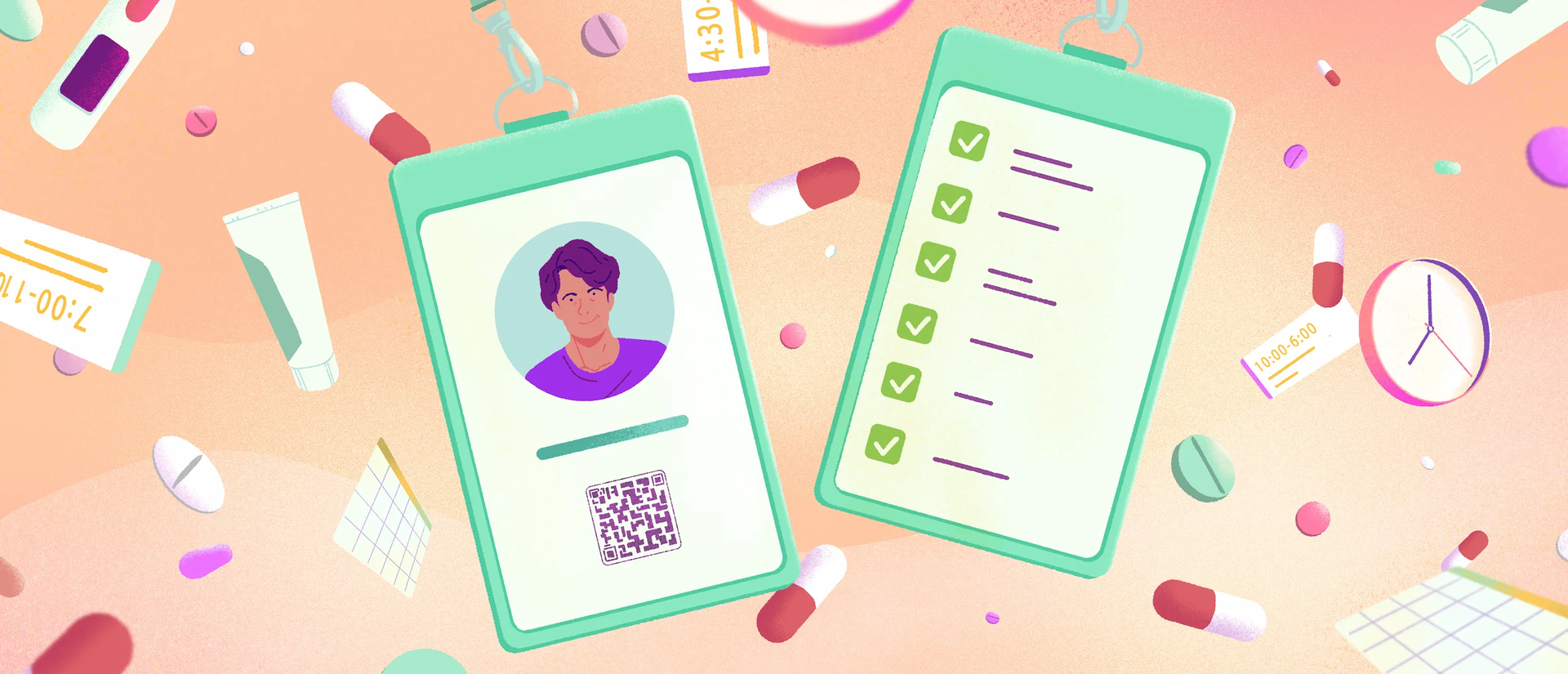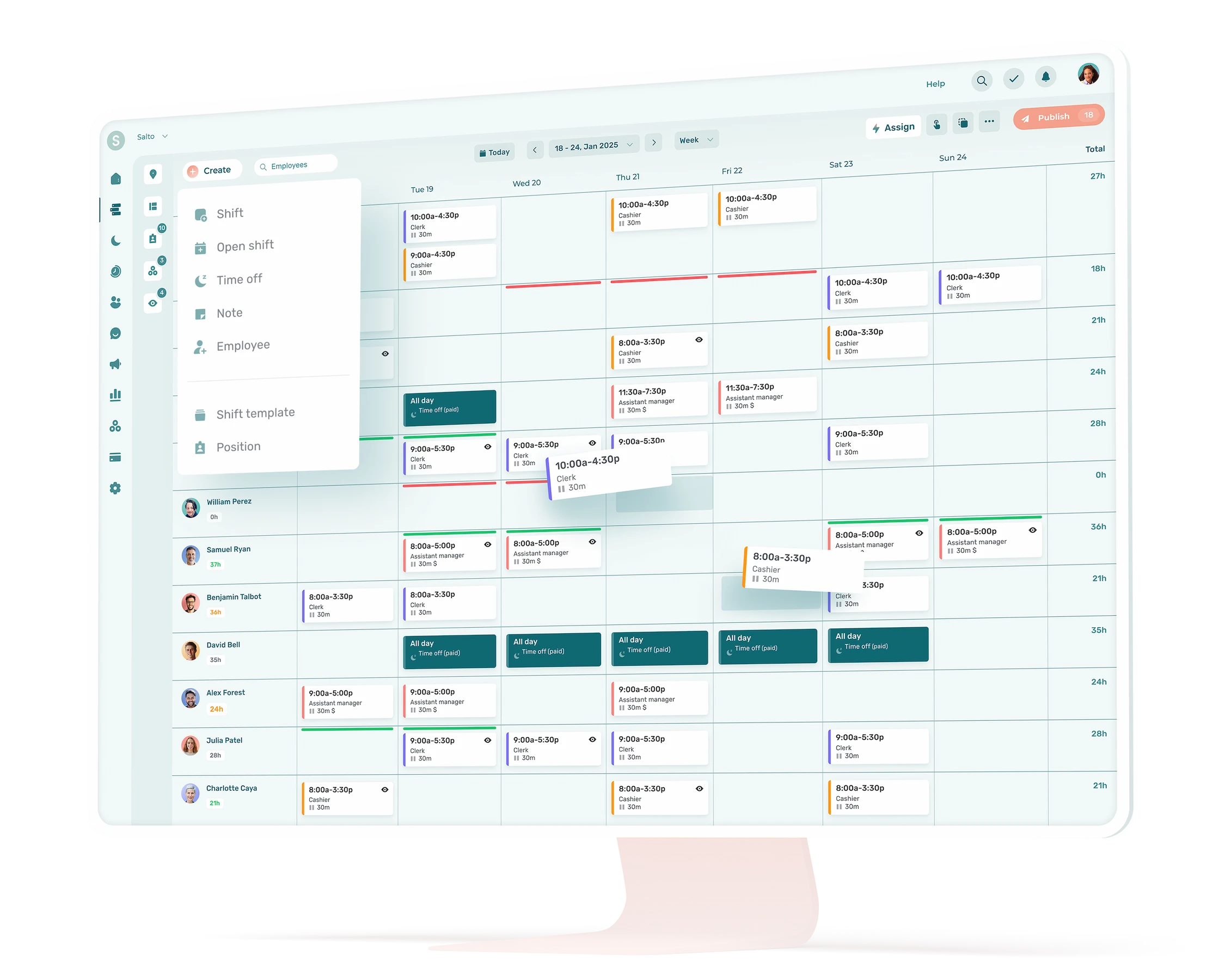Most pharmacies operate in the retail sector, offering a multitude of services to their customers.
As a result, pharmacies have to rely on a wide range of employees in numerous different roles and positions. They are also subject to various regulations that they need to follow.
Many pharmacies are run by owner-pharmacists, who are responsible not only for their pharmacist obligations, but also for their management duties. They must therefore have a very good understanding of the different roles to be fulfilled in their business, so as to be able to manage it well.
In this article, you will learn:
- All the roles of pharmacy employees: from the lab to customer service
- A pharmacist’s job description
- A laboratory technician’s job description
- A floor manager’s job description
- A cashier’s job description
- How to simplify pharmacy scheduling
The Roles of Pharmacy Employees
The roles of pharmacy employees are many and can vary according to the size of the store, its location or even the needs of customers.
Let’s take a closer look at the different roles or positions of pharmacy employees.
Laboratory
These employees are behind the medication counter, serving customers and preparing prescriptions:
- Pharmacist
- Pharmacist-owner
- Laboratory technician
- Replacement pharmacist
- Nurse
Customer Service
These employees are involved in the retail part of the pharmacy:
- Cashier
- Floor clerk
- Cosmetics department consultant
- Maintenance worker
- Floor manager
- Assistant manager
- Delivery worker
Complete Checklist for Pharmacy Employees
Most pharmacies operate in the retail industry. This means that, in addition to offering pharmaceutical services to customers, these establishments also sell various products (cosmetics, personal hygiene products, food, etc.) and may offer complementary services (photo counter, post office, etc.).
Labor requirements can therefore vary depending on the services offered.
Let’s take a closer look at the different roles or positions that pharmacy employees can occupy.
💡The job descriptions below can be used as a template to create your own and add them to your job postings.
Pharmacist
Pharmacists are drug experts. Their education has trained them to verify the proper use of medications by the public and to ensure patient health, in collaboration with other health professionals.
To become a pharmacist, one must complete a college degree leading to the title of Doctor of Pharmacy. It is also generally necessary to be a member of a professional order, and to respect the code of ethics in force.
Qualities of a good pharmacist
The qualities of a good pharmacist include:
- Communication
- Attention to details
- Empathy and compassion
- Discretion
- Listening skills
- Ability to work as part of a team
- Ability to provide good customer service
- Thoroughness
Key challenges of a pharmacist
The main challenges of the pharmacist’s position include:
- Working with a high volume of prescriptions while ensuring patient safety
- Resolving certain conflicts or misunderstandings with patients
- Managing tense situations with certain patients
- Keeping up to date with the latest regulations, new drugs and best practices in the pharmaceutical field
- Mastering new technologies
- Adjusting services to better meet customer needs
List of a pharmacist’s tasks
A pharmacist’s list of tasks includes:
- Validating and verifying patient prescriptions
- Distributing properly identified medications, ensuring that patients know how to take them
- Advising patients and explaining the different properties and side effects of medications
- Collaborating with various healthcare professionals to provide the best possible patient care
- Managing the pharmacy inventory, including stock rotation, ordering, receiving and classifying medication
- Ensuring compliance with the various regulations governing their practice
- Creating employee schedules for their business
- Providing training for team members
- Conducting customer awareness campaigns
- Managing staff, including conflict management, performance reviews and one-on-one
Average salary
The average salary of a pharmacist varies according to the field of practice (retail, hospital, private practice, etc.).
On average, pharmacists in Canada earn $52.88 an hour, while in Quebec they earn $60.00 an hour.
In the United States, they earn an average of $61.48 an hour.
Laboratory Technician
The laboratory technicians prepare, package, label and dispense medication to pharmacy patients. They also assist the pharmacist in their various tasks. They are the first point of contact with customers, and can provide them with information not related to drugs.
Laboratory technicians generally need at least a professional diploma in pharmaceutical studies. They must also complete additional training courses as needed to keep their knowledge up to date.
Qualities of a good laboratory technician
The qualities of a good laboratory technician include:
- Focus and precision
- A good memory
- Professionalism
- Communication skills
- Ability to work in a team
- Ability to provide good customer service
- Ability to listen
Key challenges of laboratory technicians
The main challenges of the laboratory technician position include:
- Multi-tasking
- Managing patient complaints
- Ensuring accurate prescription preparation
- Adapting to changes
List of tasks for a laboratory technician
A lab technician’s task list includes:
- Recording customer information and prescription details into databases
- Preparing, packaging and labeling pharmaceutical products and medicines
- Preparing prescriptions
- Assisting other team members as needed
- Maintaining inventory of drugs and other pharmaceutical products
- Making customers pay
- Opening and closing cash registers
- Pricing and shelving products as needed
- Answering customers’ questions if necessary
- Keeping work areas clean
- Answering the phone
Average salary
The average salary of a laboratory technician varies according to experience and seniority.
On average, laboratory technicians in Canada earn $20.00 an hour, while in Quebec they earn $20.75 an hour.
In the United States, they earn an average of $18.99 an hour.
Floor or Pharmacy Manager
The floor manager in a pharmacy is responsible for the smooth running of the retail portion of the business. The floor manager generally works with the pharmacist-owner to ensure customer satisfaction, achieve the pharmacy’s objectives and carry out employee management tasks.
The training required for this type of position can vary widely. Some employers prefer experience, while others require a bachelor’s degree in administration or management.
Qualities of a good pharmacy manager
The qualities of a good pharmacy manager include:
- Leadership
- Good communication
- Teamwork
- Problem-solving
- Management skills
Key challenges of pharmacy managers
The main challenges of the pharmacy manager position include:
- Creating efficient work schedules
- Receiving customer complaints
- Catering to employee needs
- Managing inventory to avoid running out of stock
- Motivating employees to give their best
- Achieving corporate objectives
List of tasks for a pharmacy manager
A pharmacy manager’s list of tasks includes:
- Supervising and managing employees
- Providing feedback to employees
- Recruiting, hiring and training new employees
- Conducting performance evaluations
- Placing orders and taking inventory
- Ensuring that operations run smoothly
- Managing customer complaints and requests
- Working as a team with the pharmacist-owner
- Improving management processes
- Creating promotions as needed
- Ensuring employee health and safety
- Making to deposits
- Monitoring the various budgets
Average salary
On average, pharmacy managers in Canada earn $37.74 an hour, while in Quebec they earn $36.06 an hour.
In the United States, they earn an average of $63.16 an hour.
Cashier
Pharmacy cashiers are responsible for making customers pay efficiently. They can also help customers find certain products when needed.
The cashier’s job doesn’t require any specific training, although some employers do ask for a high school diploma.
Qualities of a good cashier
The qualities of a good cashier include:
- The ability to provide good customer service
- Communication skills
- Attention to detail
- Ability to work efficiently and quickly
- Integrity and honesty
- Professionalism
Main challenges of cashiers
The main challenges of the cashier position include:
- Managing customer complaints
- Ensuring accuracy of transactions
- Adapting to changes
- Ability to multi-task
List of cashier tasks
A cashier’s list of tasks includes:
- Greeting customers
- Assisting customers as needed
- Scanning products
- Making customers pay
- Using POS software
- Ensuring cleanliness of the workplace
- Returning goods or issuing refunds
- Assisting coworkers as needed
- Restocking and shelving products as required
Salary
Generally speaking, cashiers in a pharmacy are paid minimum wage, unless they have several years’ experience or seniority.
Eliminate Scheduling Issues in Your Pharmacy
The roles of pharmacy employees are highly diversified. Ensuring that there are enough qualified employees for the positions to be filled can sometimes be difficult, especially in a context of labor shortage.
Having enough staff on the floor to respond to customers’ questions and needs is a major issue for pharmacy managers. To achieve this, they need the right tools.
Many pharmacy managers therefore decide to use employee management software to simplify their process and make scheduling easier.
It shouldn’t take so long to make our schedules. Saving that time allows us to invest it where it really counts. – Jessica Bouchard, Pharmacist-Owner, Familiprix
For example, with Agendrix, managers can see all employee availabilities, regardless of position, directly in the scheduler. This makes it easier to optimize schedules, and even assign shifts to employees who may occupy more than one position if necessary.
Employees receive the schedule directly on their smartphone, making communication much easier. They can also chat directly with their manager via the internal messaging feature.
Employees can also easily change their availability, request time off or even swap shifts if required. Agendrix allows greater flexibility when it comes to work schedules.
Conclusion
Pharmacies have many operational needs, which is why they have to hire a multitude of employees to fill the various positions and provide quality service.
If you’re a pharmacy manager, it’s crucial that you understand each of the positions available in your company.
With a better idea of the different roles, you’ll be able to better assess your needs and labor costs, and better understand the reality of your employees. As a result, you’ll be able to create better schedules that will help improve your talent retention.
What Are the Main Positions in a Pharmacy?
The main positions in a pharmacy include:
- Pharmacist, pharmacist-owner or replacement pharmacist
- Laboratory technician or pharmacy technician
- Cashier
- Floor clerk
- Pharmacy manager
What Are the Main Tasks of a Laboratory Technician?
The main tasks of a laboratory technician include:
- Preparing, packaging and properly identifying prescriptions
- Charging customers
- Answering customers’ questions if necessary
- Assisting the pharmacist in preparing prescriptions
- Taking inventory of pharmaceutical products
- Receiving drug deliveries
- Assisting other team members as needed
- Opening and closing cash registers
What Are the Main Tasks of a Pharmacy Manager?
The main tasks of a pharmacy manager include:
- Creating work schedules
- Managing conflicts
- Managing customer complaints
- Recruiting, hiring and training new employees
- Placing product orders
- Assisting team members
- Providing feedback to employees
- Conducting performance appraisals
- Determining budgets and objectives
- Implementing strategies to ensure the success of the pharmacy










